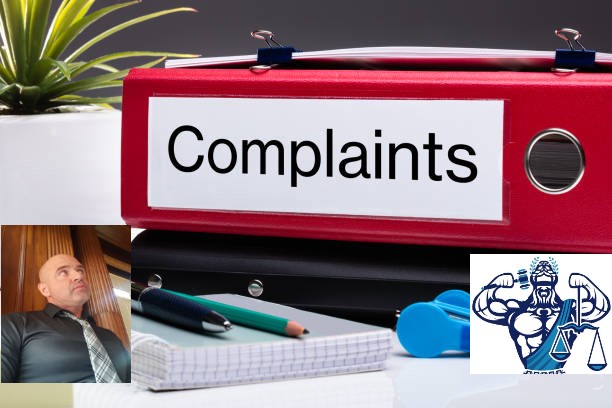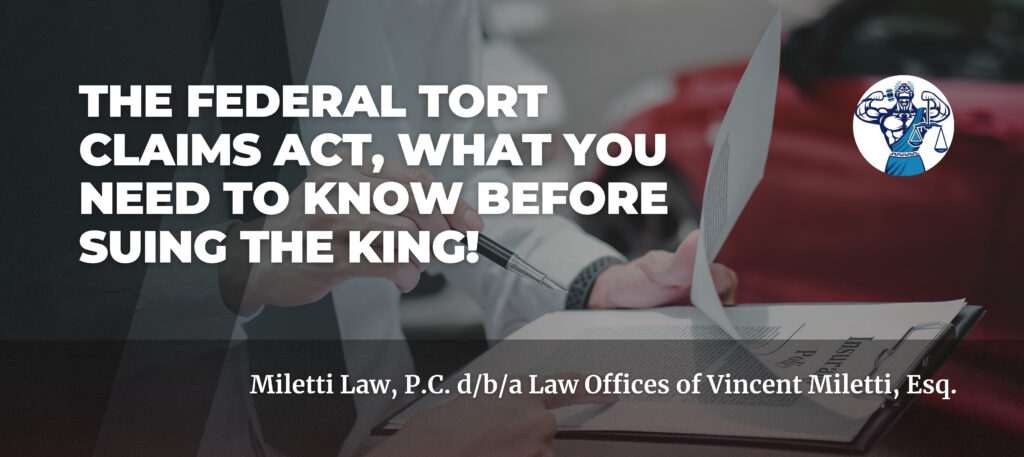Here at the Law Office of Vincent Miletti, Esq. and the home of the #UnusuallyMotivated movement, we take pride as a resilient and dependable legal services firm, providing such services in both a traditional and online, web-based environment. With mastered specialization in areas such as Employment and Labor Law, Intellectual Property (IP) (trademark, copyright, patent), Entertainment Law, and e-Commerce (Supply Chain, Distribution, Fulfillment, Standard Legal & Regulatory), we provide a range of legal services including, but not limited to traditional legal representation (litigation, mediation, arbitration, opinion letters, and advisory), non-litigated business legal representation and legal counsel, and unique, online legal services such as smart forms, mobile training, legal marketing, and development.
Still, we, here at Miletti Law®, feel obligated to enlighten, educate, and create awareness, free of charge, about how these issues and many others affect our unusually motivated® readers and/or their businesses. Accordingly, in order to achieve this goal, we have committed ourselves to creating authoritative, trustworthy & distinctive content, which looks to not only educate, but also deliver in a manner that only Miletti Law® can. Usually, this content is featured as videos posted on our YouTube Channel https://www.youtube.com/channel/UCtvUryqkkMAJLwrLu2BBt6w and blogs that are published on our website WWW.MILETTILAW.COM. With that, the ball is in your court and you have an effortless obligation to subscribe to the channel and sign up for the Newsletter on the website, which encompasses the best way to ensure that you stay in the loop and benefit from the knowledge bombs that we drop here!
Here at Miletti Law®, we are the authoritative force in Employment and Labor Law. Therefore, we are committed to updating our series on employment & labor law with fresh, verifiable, and credible content. In that spirit, this blog is Part XIV of our series on New York State and City laws that apply to workplace harassment, discrimination, & retaliation. In Part XIII of this series, we provided you with an overview of key concepts related to disability discrimination and the disability-related protections provided under New York laws that apply to workplace harassment, discrimination, & retaliation. Accordingly, we have moved the discussion forward with an overview of the duty employers have to reasonably accommodate disabilities pursuant to the NYCHRL in this blog and Part XIV of the series.
Duty to Reasonably Accommodate Disabilities under the NYCHRL
As provided under the NYC Administrative Code § 8-107, subd. 15(a), employers are mandated by the NYCHRL to provide an unpaid intern and employees with a reasonable accommodation so that such an individual can satisfy a job’s essential requirements, given that the employer knows about the disability or the disability is known. In line with the definition provided in our blog accessible at https://milettilaw.com/blog/f/definition-of-reasonable-accommodation, the NYC Administrative Code 8-102 defines “reasonable accommodation” as an accommodation that, once provided, shall not impose undue hardship in how the employer conducts business.
Contrary to the ADA (Americans with Disabilities Act of 1990) & the NYSHRL (New York State Human Rights Law), the NYCHRL does not give room for any type of accommodation that is categorically excluded from the universally acceptable reasonable accommodations, irrespective of whether such an accommodation would be indefinite leave time or some other disability-caused need.
In line with the definition provided earlier, if an accommodation imposes an undue hardship on the business’s conduct, then the NYCHRL does not require the employer to provide an accommodation to an unpaid intern or employee with a disability. However, the burden of proving that an accommodation would have imposed an undue hardship is solely borne by the employer.
Accordingly, in order to determine whether an undue hardship would be imposed by an accommodation, the following factors should be considered:
- The size & overall financial resources of the employer’s business.
- The accommodation’s cost and nature.
- The type of operations of the employer-and-
- The impact such an accommodation would have upon the facility’s operation, the number of people employed at the business, and the financial resources of the employer’s business.
Examples of Unreasonable & Reasonable Accommodations
As mentioned above, contrary to the ADA & the NYSHRL, if a court finds that, under specific circumstances, indefinite leave is reasonable, then the court may rule that indefinite leave qualifies to be a reasonable accommodation under the NYCHRL. However, suppose there are no vacant positions. In that case, an employer is not mandated by the NYCHRL to reassign the employee or even create a new job as a form of accommodation, although reassigning an employee with a disability to a vacant position for which such an employee is qualified may qualify to be a reasonable accommodation.
In line with this provision, courts have ruled to such an effect. For instance, in the case, “Pimentel v. Citibank, N.A., 29 A.D.3d 141, 146, 151 (1st Dep’t 2006),” an employee, whose job’s essential function entailed customer service, brought forth a claim that the employer had failed to provide her with reasonable accommodation. In her request for reasonable accommodation, the employee wanted an alternative position where she could work at a reduced level of stress and not come into contact with people or customers. By this, this employee acknowledged that she could not perform her job’s essential requisites and, therefore, the court ruled that her request did not qualify as a reasonable accommodation.
In Part XV, we shall hammer on “Employer Duty to Reasonably Accommodate Disabilities under the NYSHRL” and learn more about what the NYSHRL says about the duty of employers to provide employees or unpaid interns with reasonable accommodations.
Until then, stay tuned for more legal guidance, training, and counsel. In the interim, reach us with questions or comments on our website at the Contact Us page!
Always rising above the bar,
Isaac T.,
Legal Writer & Author.
 Professional Legal & Business Services And Representation - English & Espanol!
Professional Legal & Business Services And Representation - English & Espanol!

 314-648-2586
314-648-2586 CALL US NOW
CALL US NOW








